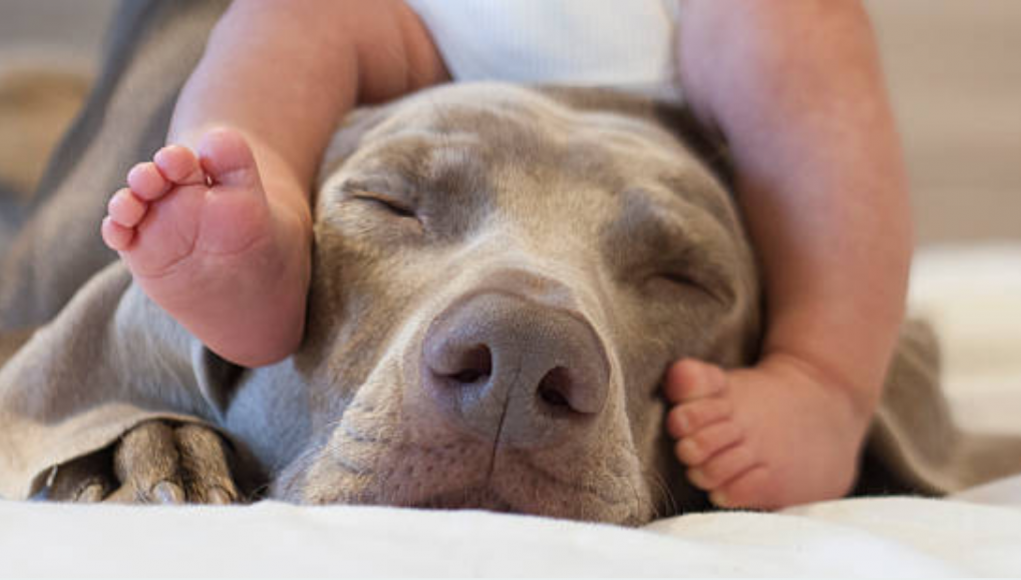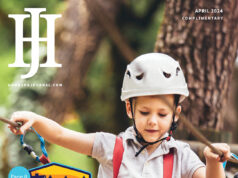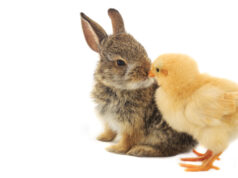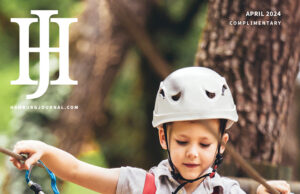Having a baby can be a scary thing. There are car seats, combi strollers, La Leche Leagues—the information is overwhelming. Now try adding your dog into the equation. One of the most common reasons that dogs arrive at the Lexington Humane Society is because their owners are expecting. Better listen to your in-laws (who always have an opinion about everything) and get rid of your furry friend so he “won’t bite the baby” when you bring your newborn home, right?
Wrong. There’s no reason to kick one “baby” out just because you’re bringing another in. Yes, having a new family member in the house will be stressful on your dog. It’s a total change from the life they were used to, when they got to sleep in the bed and play fetch for hours. It’s an adjustment that the entire family needs to make together, and that includes the dog. Babies and dogs can coexist peacefully—even love each other—with a little bit of work.
First thing’s first, and that’s training your dog to be a good canine citizen. If your dog hasn’t been through obedience training, get him into a class with a reputable dog trainer. Lexington has some great trainers who can help good dogs become great dogs. Make sure to practice the basic commands as much as possible once your dog has learned them. It will bring you piece of mind to know that when you tell him to stay, he’ll listen to you. Once your dog is well-trained and obeying commands, you’ll have the control needed when introducing him to the baby.
Next you’ll want to start reducing the amount of time you spend with your pet. Yes, that’s difficult, but it’s better to gradually do it now than after you bring your bundle home, when your dog will associate the new baby with the lack of attention and be less accepting of it. The two-hour long sessions of fetch in the park will be put on hold while you turn your attention to your baby, and a slow change will make your dog more accepting of the new order of things. Thankfully most dogs can’t tell time, so five minutes at a time of total attention may keep him feeling secure in your love.
Now that your dog is under control, it’s a good idea to start exposing him to babies in a safe, controlled setting. Get him used to the sight of strollers and the sound of crying so he knows what to expect when baby comes home, and you can also see how he’s going to react when he meets your little one. You can buy CDs that play sounds of babies crying to help him grow accustomed to hearing it. Reward him for good behavior—if he’s sniffing the stroller and tolerating the crying, give him treats to reward him.If his behavior is unacceptable, calmly and swiftly remove him from the situation to cool down and then try again. It may take some practice, but this is a crucial step, as exposing your animal to as many different stimuli as possible will keep him well-socialized around your baby.
Once your baby comes home, it’s time to put your work into practice. First, bring in a blanket with your baby’s scent on it so he gets used to the smell. Take introductions slowly. Whatever you do, never leave your dog alone with your child, no matter how well-behaved he is. You might swear up and down that your dog is a saint, but no matter how trustworthy he may be, it’s never a good idea. This is how accidents occur. Make sure your pup has a space he feels comfortable retreating to, as he may be overwhelmed with your new addition. Take baby steps (ha!), and your dog and baby will grow up together being two peas in a pod.
Provided by Lexington Humane Society












